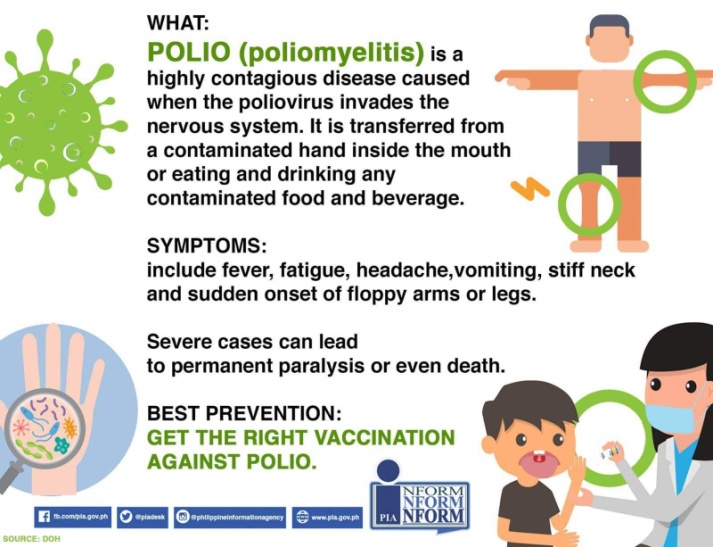Description

Disclaimer: Copyright infringement not intended.
Context
- Not wild poliovirus but vaccine-derived poliovirus (VDPV) was detected in the environmental surveillance of sewage samples from Kolkata: Health Ministry official.
About Polio
- Poliomyelitis (polio) is a highly infectious viral disease that largely affects children under 5 years of age.
- The virus is transmitted by person-to-person spread mainly through the faecal-oral route or,less frequently, by a common vehicle (e.g. contaminated water or food) and multiplies in the intestine, from where it can invade the nervous system and cause paralysis.
- Because polio is highly contagious, no one is safe until everyone is vaccinated.
- In 1988, the World Health Assembly adopted a resolution for the worldwide eradication of polio, marking the launch of the Global Polio Eradication Initiative.
- Wild poliovirus cases have decreased by over 99% since 1988.
- Of the 3 strains of wild poliovirus (type 1, type 2 and type 3), wild poliovirus type 2 was eradicated in 1999 and no case of wild poliovirus type 3 has been found since the last reported case in Nigeria in November 2012.
- Both strains have officially been certified as globally eradicated.
- Wild poliovirus type 1 affects two countries: Pakistan and Afghanistan.

What is India’s situation with regard to the disease?
- India was declared polio-free in January 2014,after three years of zero cases.
- The last case due to wild poliovirus in the country was detected on January 13, 2011.
- Inactivated poliovirus vaccine (IPV) protectspeople against all three types of poliovirus.
What is a vaccine-derived poliovirus?
- A vaccine-derived poliovirus (VDPV) is a strain of the weakened poliovirus that was initially included in oral polio vaccine (OPV) and that has changed over time and behaves more like the wild or naturally occurring virus.
- This means it can be spread more easily to people who are unvaccinated against polio and who come in contact with the stool or respiratory secretions, such as from a sneeze, of an infected person. These viruses may cause illness, including paralysis.
- For this reason, the global eradication of polio requires stopping all OPV in routine immunization, as soon as possible after the eradication of wild poliovirus (WPV) transmission.
https://epaper.thehindu.com/Home/ShareArticle?OrgId=GAU9UB8KH.1&imageview=0
1.png)

















